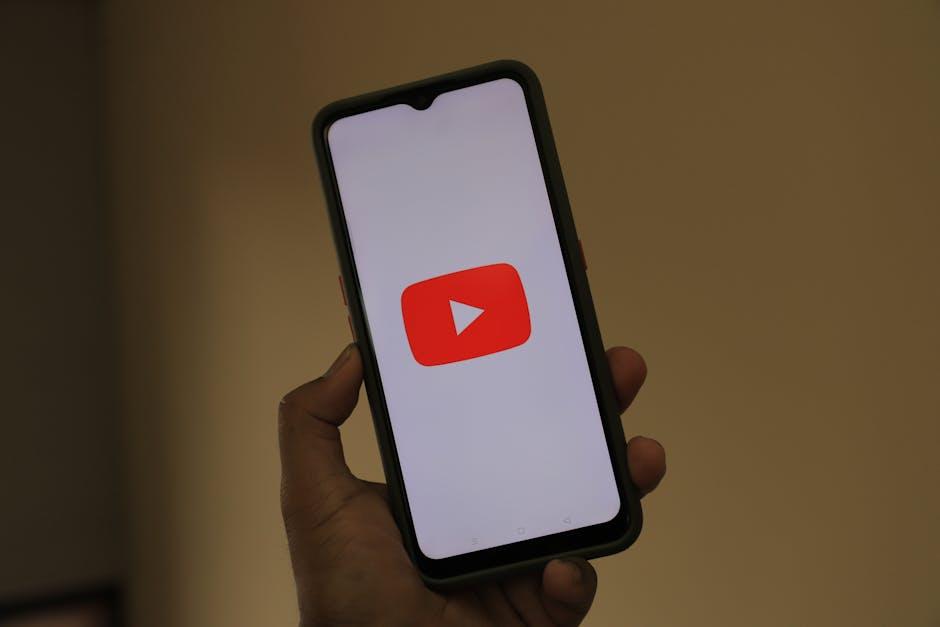Designing Video Marketing Campaigns for Vertical-First Platforms
In today’s digital age, vertical-first platforms like TikTok, Instagram Reels, and Snapchat have revolutionized how brands engage audiences through video marketing. These platforms prioritize vertical (portrait) video formats that capitalize on smartphone usage trends, making it essential for marketers to optimize their video campaigns accordingly. Whether you’re a seasoned marketer or a small business owner, understanding how to create compelling vertical video content is critical for rising above the noise and driving meaningful engagement.
What Are Vertical-First Platforms?
Vertical-first platforms are social media channels designed primarily for vertical video consumption. Unlike traditional platforms optimized for landscape videos (16:9 aspect ratio), vertical platforms encourage content creators and marketers to produce videos in a portrait orientation (9:16). This design aligns perfectly with how users naturally hold their smartphones, creating a seamless and immersive user experience.
- TikTok: A pioneer in vertical video content, TikTok’s short-form videos dominate Gen Z engagement worldwide.
- Instagram Reels: Instagram’s answer to TikTok, focusing on short, catchy, vertical videos embedded within the Instagram app.
- Snapchat: Popular among younger audiences, Snapchat embraces vertical video storytelling, including ephemeral content.
- YouTube Shorts: YouTube’s vertical video format designed to capture audiences looking for quick, engaging clips.
Why Focus on Vertical Video Marketing Campaigns?
Vertical videos have reshaped social media marketing because they are better catered to mobile-first experiences where 75%+ of users browse content on smartphones. Utilizing vertical video ensures your marketing messages naturally fit user behavior, improving visibility, engagement, and conversions.
Key Benefits of Vertical Video Marketing
- Higher Engagement Rates: Vertical videos capture the full phone screen, decreasing distractions and fostering deeper viewer engagement.
- Improved Audience Retention: Short, vertical clips are easier to watch and digest, resulting in longer view times and repeated views.
- Efficient Storytelling: Vertical-first platforms thrive on authentic, concise, and visually compelling narratives that resonate instantly.
- Enhanced Discoverability: Platforms like TikTok’s algorithm heavily favor vertical videos optimized for their interface, increasing the likelihood of viral reach.
How to Design Effective Video Marketing Campaigns for Vertical-First Platforms
1. Understand Your Target Audience and Platform
Each platform attracts different demographics and user behaviors. Tailor your campaign’s tone, style, and messaging to fit this audience and platform norms:
- For TikTok, focus on humor, trends, and authentic content.
- For Instagram Reels, balance creativity and polish, since audiences expect visually appealing content.
- Snapchat requires immediate, spontaneous storytelling with a casual vibe.
2. Produce Videos in the Native Vertical Format (9:16)
One of the cardinal rules is creating videos that fill the entire mobile screen vertically. Avoid “pillarboxing” or adding black bars which can reduce engagement.
| Aspect Ratio | Recommended Dimensions | Usage |
|---|---|---|
| 9:16 | 1080 x 1920 px | Standard vertical video for TikTok, Reels, Snapchat |
| 1:1 | 1080 x 1080 px | Square video (less recommended but sometimes used) |
| 16:9 | 1920 x 1080 px | Landscape video, not ideal for vertical-first platforms |
3. Hook Your Audience Within the First 3 Seconds
Attention spans are shorter than ever. Use compelling visuals, intriguing questions, or dynamic text to capture viewers immediately. Start with a strong hook such as:
- An unexpected action or scene
- Bold captions or animations
- Direct questions or statements that spark curiosity
4. Prioritize Authenticity and Storytelling
Audiences on vertical-first platforms value relatable and authentic content over slick, heavily produced videos. Focus on storytelling that feels human and genuine:
- Use behind-the-scenes clips or user-generated content
- Showcase real people and emotions
- Keep messaging straightforward and conversational
5. Optimize Video Length for Platform Norms
Vertical-first platforms prefer short and punchy videos:
- TikTok: 15 to 60 seconds is optimal
- Instagram Reels: 15 to 30 seconds preferred
- Snapchat: 10 to 15 seconds per snap
6. Incorporate Captions and Visual Text
Many users watch videos without sound, especially in public or work environments. Adding captions or dynamic text overlays ensures your message is delivered even on mute.
7. Leverage Platform-Specific Features
Each vertical-first app has features to increase engagement:
- TikTok: Duets, stitches, trending sounds
- Instagram: Hashtags, augmented reality (AR) effects, remix features
- Snapchat: Geofilters, lenses, snap polls
Practical Tips for Campaign Success
- Test Different Creatives: Use A/B testing to find what style resonates most with your audience.
- Engage with Trends: Incorporate trending challenges or hashtags to boost visibility.
- Include Clear CTAs: Even in short clips, guide viewers on what to do next – whether it’s visiting your site or following your profile.
- Analyze Performance: Monitor analytics regularly to tweak and improve campaigns in real time.
Case Study: How a Retail Brand Boosted Sales Using Vertical Video
A popular retail brand launched a vertical-first TikTok campaign showcasing quick styling tips using their clothing line. They followed platform best practices such as vertical format, fast hooks, and authentic storytelling. Results within one month included:
| KPI | Before Campaign | After Campaign |
|---|---|---|
| Video Views | 50,000 | 1.2 million |
| Engagement Rate | 3.5% | 12.7% |
| Online Sales Uplift | Baseline | +28% |
This case highlights how vertical-first video campaigns, when executed thoughtfully, can significantly expand reach and drive tangible business growth.
Conclusion
Designing video marketing campaigns for vertical-first platforms is no longer optional-it’s a necessity for brands that want to thrive in mobile-centric social media landscapes. By embracing vertical video formats, understanding platform nuances, and leveraging authentic storytelling, marketers can maximize engagement and ROI. Start by aligning your content with the vertical-first mindset, prioritize audience connection, and continually optimize based on performance data. The future of video marketing is vertical-and your campaign success depends on it.











